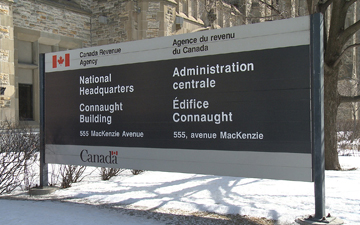CRA further circumscribes trust 21-year planning strategies involving non-resident beneficiaries

The CRA's stated positions will result in a chill on tax practitioners' advice to their clients, says Stephen Sweeney of Miller Thomson
Note: This article originally appeared in the March 3, 2020 edition of Miller Thomson’s Wealth Matters newsletter.
 |
Stephen Sweeney, TEP, is a partner in the Kitchener-Waterloo office of Miller Thomson LLP. |
Subsection 107(2) of the Income Tax Act1 generally provides for a tax-deferred rollout of capital property held by the trustees of a Canadian-resident personal trust to their capital beneficiaries in satisfaction of their capital interests in the trust. This rollover treatment is an important factor in the ongoing operation of trusts. It assumes greater significance in planning for the consequences of the deemed disposition of the property of a trust at the time of its 21st anniversary pursuant to subsection 104(4) of the Act. Typically, trustees will seek to avoid the deemed disposition to the trust by distributing the trust's capital property utilizing the subsection 107(2) rollover. However, in the case of trusts whose beneficiaries include persons not resident in Canada at the time of a capital distribution, this rollover treatment is usually not available which effectively accelerates the realization of the inherent tax liability attributable to appreciated capital properties held within the trust.
At the 2017 CTF Annual Conference, a question was posed to the CRA involving the distribution of property by a Canadian-resident discretionary trust to a Canadian-resident corporation whose shares are held by one or more non-resident beneficiaries of the trust. The situation described specified that the property to be distributed would not consist of any of the properties described in subparagraphs 128.1(4)(b)(i) to (iii) of the Act (generally, real or immovable property situated in Canada, Canadian resource property, timber resource property or property used in a business carried on in Canada). In their response2, CRA took the position that the situation addressed circumvented the application of subsections 107(5) and 107(2.1) in a manner that frustrates or defeats the object, spirit or purpose of those provisions, the subsections 70(5), 104(4) and 107(2) and the Act as a whole. The CRA stated that the proposed transactions could result in any capital gains inherent in the trust's property being deferred, not only beyond the trust's 21-year anniversary but also potentially beyond the life of the non-resident beneficiary or indefinitely. The CRA added that this subverted the purpose of subsection 107(5) of the Act, which in their view is to ensure that Canada maintains the ability to tax capital gains that accrue during the period that property is held by a Canadian-resident trust.
By way of a follow-up to this position, a further question was posed to the CRA at the 2019 CTF Annual Conference. The CRA was asked3, would their view be different where the property distributed from a Canadian-resident discretionary trust to a Canadian-resident corporation whose shares are held by one or more non-resident beneficiaries of the trust constituted taxable Canadian property?
More specifically, the CRA was asked to consider a situation where the trustees of a Canadian-resident discretionary family trust are planning to distribute all or a portion of the trust's property to one or more of its beneficiaries in advance of the trust's 21st anniversary. The property is a taxable Canadian property, as defined in subsection 248(1) of the Act, but is not a property described in subparagraphs 128.1(4)(b)(i) to (iii) of the Act, nor a share of the capital stock of a non-resident-owned investment corporation. The beneficiaries of the trust that are intended to receive the property are natural persons who are non-residents of Canada at the relevant time. Instead of distributing the property to the non-resident beneficiaries directly, the trustees propose to distribute the property on a tax-deferred basis, pursuant to subsection 107(2), to one or more Canadian-resident corporations whose shares are held by one or more non-resident beneficiaries of the trust. The result is that the property will no longer be held by the trust and as such will not be subject to the 21-year deemed disposition rule. In addition, since the property will be distributed to one or more Canadian-resident corporations, subsection 107(5) should not be applicable. Therefore, the property will be transferred out of the trust on a tax-deferred basis pursuant to subsection 107(2) and not pursuant to subsection 107(2.1).
In its response, the CRA stated that their position when faced with the situation described would not be different from their views expressed in their 2017 position notwithstanding that, in the situation described, the property is a taxable Canadian property, as defined in subsection 248(1) of the Act, but is not a property as described in subparagraphs 128.1(4)(b)(i) to (iii) of the Act, nor a share of the capital stock of a non-resident-owned investment corporation. Perhaps to emphasize the point, the CRA went on to say that, in their view, subsections 107(2.1) and (5) are intended to result in the immediate realization of capital gains on property distributed to non-residents over which Canada does not retain the absolute right to tax without restriction. Presumably by this, the CRA was expressing the concern that their ability to tax such gains at a future time, as would remain the case for any property distributed pursuant to subsection 107(2), should not be affected by tax treaties to which Canada is a party.
The CRA went on to state that they have significant concerns regarding transactions of the type described in the question, and also in respect of "other situations involving the distribution of property from a family trust to a Canadian corporation with one or more non-resident shareholders", and will consider the application of GAAR when faced with similar transactions unless substantial evidence supporting its non-application is provided. Furthermore, they will not provide any advance income tax ruling where such structures are proposed to be put in place.
While it remains possible that the CRA's stated positions may not withstand judicial scrutiny on the right set of facts, these statements will result in a chill on tax practitioners' advice to their clients and thus will significantly lessen the planning opportunities available to defer the taxation of gains beyond a trust's 21-year anniversary when non-resident beneficiaries are involved.
Footnotes
1 Income Tax Act, R.S.C. 1985, c. 1 (5th Supp.), as amended (herein referred to as the "Act"). Unless otherwise stated, statutory references in this article are references to the Act.
2 2017 CTF Annual Tax Conference CRA Roundtable, November 21, 2017, Question 1.
3 2019 CTF Annual Tax Conference CRA Roundtable, December 3, 2019, Question 6.
Stephen Sweeney, TEP, is a partner in the Kitchener-Waterloo office of Miller Thomson LLP. He is a member of the firm’s Tax Practice group and serves as practice group liaison for the firm’s Private Client Service Group for its Southwestern Ontario offices.








(0) Comments